Mohammed Kudus is Ghana’s World Cup star inspiring those at the Right to Dream academy now aiming to follow his path | Football News
Ghana has a new hero and his name is Mohammed Kudus. Already impressing in the Champions League, his impact at this World Cup should be no surprise. But what is unusual is the deep connection that he has with his supporters at home in Ghana.
He is the embodiment of a new type of player, a product of one of the finest academies in world football. Not Ajax, the famous club for which he now plays, but Right to Dream, the academy in his homeland where he is now an inspiration for young people.
“Kudus is massive here,” former Ghana midfielder Derek Boateng tells Sky Sports.
“Every time he is playing, it does not matter whether it is the Champions League or a friendly match, you will see all the kids get up and watch Kudus. Just Kudus. They just want him to score. When he scores, everyone is all over the place.”
Boateng is describing the scene at the academy in eastern Ghana where he works and where Kudus began his journey. A goal for Ajax against Liverpool earlier this season sparked huge celebrations. When Kudus scored twice against South Korea, it was joyous.
From Tony Yeboah and Abedi Pele to Michael Essien and Asamoah Gyan, this country has had its heroes. Right now, at just 22, Kudus is that player – and not just at his old academy. “Everywhere you go in Ghana, the name they are mentioning is Kudus.”
His two goals against Korea have put Ghana in a strong position to qualify for the knockout stages of the World Cup in Qatar, exceeding expectations given that they are the lowest-ranked team in the tournament. Kudus is their top scorer but also their leader.
“The coach had to find someone to build the team around who he could trust,” Boateng explains. “It is Kudus. What I like is his confidence. He goes on the field and he shows the world Kudus. He gives respect after the game but during the game, he goes all out.
“I love his bravery on the ball. He is powerful. He is the total package and I am so glad that the coach recognises that. He is only 22 and has two or three World Cups after this. But he is the main man now.” That reflects his ability and his character.
It is customary at this point to explain how this man was honed in Europe, a raw prospect who learned the game at Ajax after adjusting to life on the continent in Denmark with FC Nordsjaelland. Those who have followed his journey push back on that narrative.
There is no doubt that FC Nordsjaelland’s involvement was crucial. The club provides more minutes to players under the age of 21 than any other top-tier professional team in the world. They provided the environment for Kudus to flourish and develop so quickly.
Kudus is gracing Europe with his game. But he was made in Africa.
Learning from Ghanaian culture
Tom Vernon, the former Manchester United scout in Africa, founded the Right to Dream academy and is the co-owner of FC Nordsjaelland. Note that it is Right to Dream that bought the club in Denmark not the other way around – an important distinction.
He spent 17 years living in Ghana and speaks passionately about how the culture of the country is not something for him to foist his ideas upon. Talents such as Kudus did not need to be sculpted or saved, they just needed the opportunity to shine.
“The environment taught and developed me rather than me going there to teach and develop anybody,” Vernon tells Sky Sports. “For example, our academy is built on the philosophy of ubuntu and the idea that a village raises a child.
“If you go into a supermarket with a baby, it is really normal for one of the women stacking the aisles to take that baby off for a play while you get your shopping done. Just think how far away we are in the west from that being something we could accept or trust now.
“I just think that is the wrong direction. What else are we overlooking just because it isn’t as polished? We want to help people connect with societies that have been misunderstood. There is so much richness there that is overlooked by the rest of the world.
“People will have you believe that these people were so hungry that they fought through all their barriers to make it. But there are so many components of Ghanaian society that breed excellence which have been really overlooked by the west for a long time.
“There is still that theme that we need to educate and develop Africa but when there are things like mental health issues and bitter political divides in the west, there are more solutions in Africa if we chose to look there about how we construct our society.
“Maybe we should ask ourselves another question. If we had not intervened so brutally 450 years ago, maybe those societies would have developed as models of how we could live and function rather than just being 70 years into trying to rebuild themselves.
“It is about looking into the kernels of African societal brilliance that have been battered by the west for so long. We can learn from those principles, which are the cradle of humanity and where the earliest ideas about how we could live and organise ourselves started.
“Those are the principles that have guided Right to Dream not what I learned at Manchester United. I learned some great stuff there but not how to connect and how to do the best for every individual. That was something that I learned from Ghanaian society.”
Emphasis on education
Boateng is back in Ghana after spending the best part of two decades as a player in Europe. He paints a similar picture. “It is not always about us learning from Europe,” he explains. “They can learn from us. And there is a lot to learn from Right to Dream.”
Kudus has done that, steeped in the values of the academy that he joined as a 10-year-old boy, the academy where Ghana team-mates Kamaldeen Sulemana and Kamal Sowah also started out. All now thriving in Europe, they want to lift up the next generation.
This principle helps to explain why Kudus retains such a strong connection with the youngsters at the academy. “One of the boys was having some issues recently, so the boy called Kudus because he needed advice and Kudus talked to him,” says Boateng.
“He always wants to help people and he wants to give back to society. He never forgets where he has come from. Whenever he comes back to his local team, he brings boxes of boots and jerseys for them. He is a person who always thinks of giving back.”
Boateng speaks warmly of his work: “I have so much energy on my scouting trips because I know I am going to change a child’s life.” He is proud that they are home to girls as well as boys – rare in this profit-oriented world. Proud too of the emphasis on education.
“I was walking to the academy one day and I saw kids in their school uniforms, they did not greet me, they just walked past. They were not from the academy, just from the village. Then I saw another kid who was naked without any clothes, about four years old.
“He wished me good morning. Education is not just being good academically, it is how you treat people.
“Kudus is the most respectful player I have ever seen and he is a smart guy. But he is a guy who does not talk a lot. He is always reserved, always observing. If you don’t know him, you could talk for 20 minutes and he would talk for two seconds.
“He is doing his talking on the pitch.”
Vernon has been in this game a long time, seen many special players. What Kudus is doing at this World Cup stands out but it is not the on-pitch accomplishments of these graduates that resonates most now. “It started with that being the end-game,” says Vernon.
“When it happened, it was not that he was playing in the World Cup, it was who he was and what he stood for. What they are doing for their communities stands the test of time, not when they score a goal or sing an anthem. That stuff is not so meaningful for me.”
In Ghana, there is an academy full of dreamers following every move of Mohammed Kudus, an identifiable role model inspiring others to follow his lead.
“The kids look up to him because he is one of them and now he is up there,” adds Boateng. “That is their dream too.”
Right To Dream are a purpose-only football community, who are building academies, professional football clubs and education networks across the globe. To learn more about how they are inspiring lasting change in the sports industry, visit

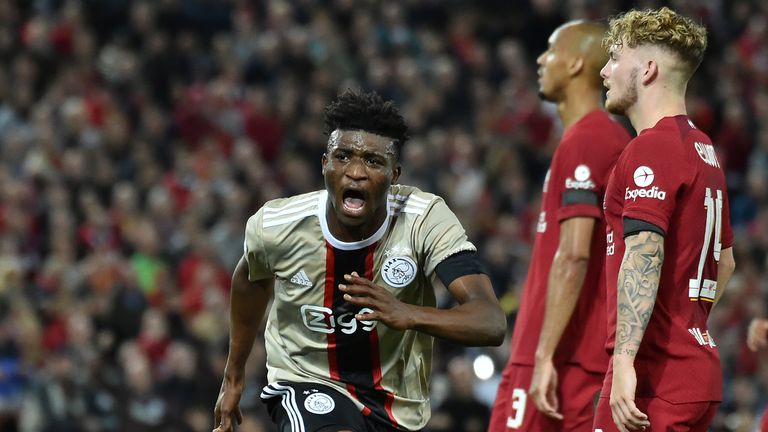
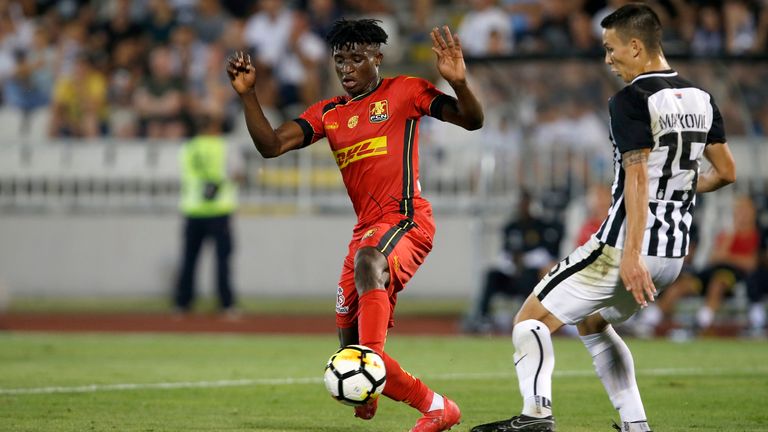
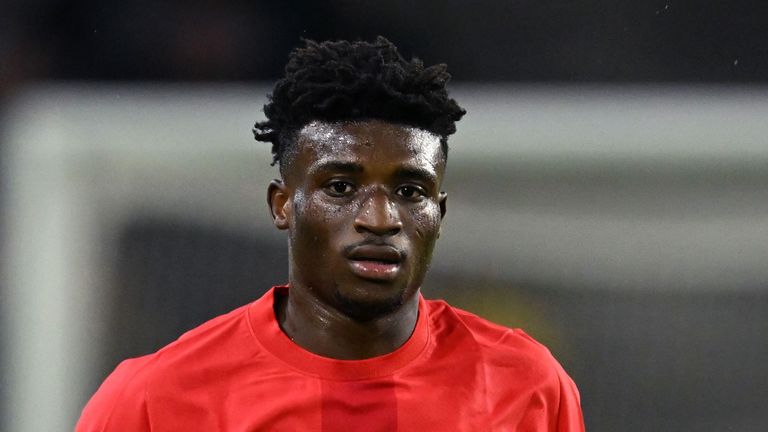
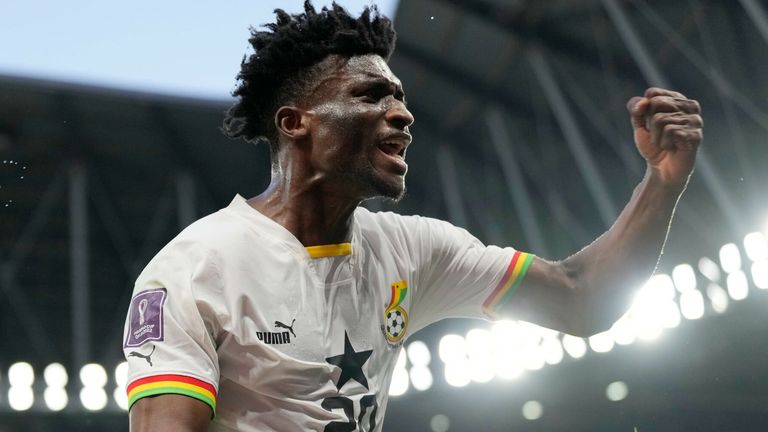
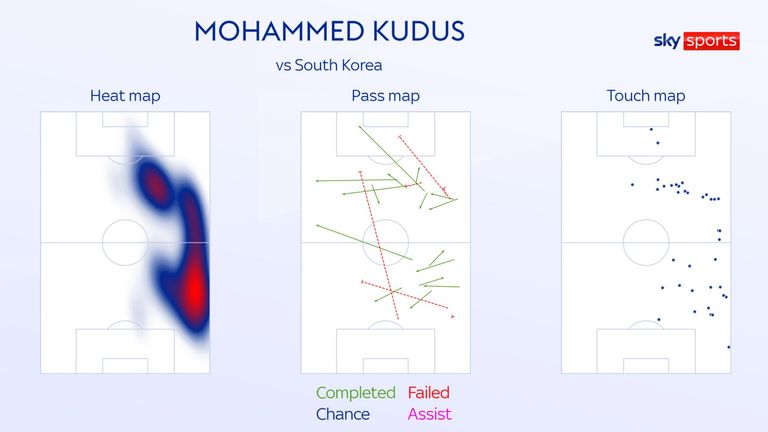
Pingback: rukkhashava mushroom shop
Pingback: Buy currency bills Japan,
Pingback: go right here
Pingback: c2c chat
Pingback: pinup
Pingback: Edibles UK